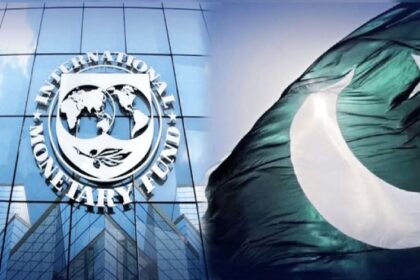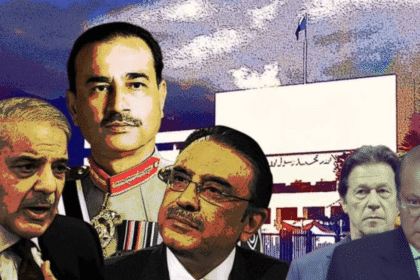Ours is a nation where the rupee depreciates faster than public trust. In this view, Pakistan’s unveiling of its first government-led strategic Bitcoin reserve has landed with all the subtlety of a drone strike on common sense. It has been conveniently framed as a leap towards much-needed financial sovereignty and a digitally integrated sense of national security. But why is it that the announcement feels less like fiscal policy and more like a nationally broadcast fever dream? A more important question is: is it modernisation or a crypto mirage?
In essence, the idea of holding Bitcoin as a national reserve is novel and well sought after, but at the same time, it is unconventional. Despite its growing potential as a decentralised asset, Bitcoin remains highly speculative and unregulated. It appears as if behind the holographic gloss lies a much older truth—one that does not concern economic modernisation but the crypto-washing of chaos.
Historically, financial bubbles like the famous Tulip Mania of 17th-century Holland offer a cautionary parallel. It is relevant because Bitcoin reflects similar speculative surges and hype. It is not backed by GDP, by industry, or by political will—but rather, by sentiment and the digital whims of global capital. For Pakistan, where a coherent understanding of macroeconomics and blockchain mechanics is lacking, hailing Bitcoin as a financial bulwark is concerning. It should concern anyone with even a marginal awareness of economic history. An understanding must be gained: this is not about hedge strategies or even decentralised finance. It is largely about the procurement of centralised control over a decentralised illusion, where digital utopianism is used as a distraction from material decay and mistaken for a solution.
In this age of optics, every state must perform—and Pakistan is rarely one to miss a stage, which is why it has entered the global crypto theatre. Domestically, this move plays out differently because the average citizen does not see Bitcoin as an opportunity; they see it as something that does not touch their lives. At home, it lands more like an elite strategy, spoken about in rooms where common civilians are not invited. It might be part of a long-term plan to reshape our financial image, but right now, for many at home, it’s just another screen they’re not logged into.
Unsettling is the extent of ignorance disguised as innovation. Public briefings speak of ‘blockchain resilience’ and ‘algorithmic sovereignty’, but beneath these intellectual buzzwords lies a dangerous emptiness: a volatile token cannot fix a volatile state. And all dysfunctions of these manoeuvres aside, prioritising mid-tier influencers over economists is hardly a plausible idea. With this in mind, how does one believe that, in its entirety, it is a reform and not a smokescreen for further economic abdication? Because Bitcoin, in all honesty and fairness, is not so much a currency as it is a belief system. And as we have learnt from history, belief systems make for very poor balance sheets.
There is a very fine line between crypto-literacy and crypto-escapism, and we might be seen crossing it sooner or later. If anything, it points to a broader trend that reflects Pakistan’s techno-optimism without technocracy. A ‘been there, done that’ situation: e-governance portals that do not load, policy apps that track nothing, and digital dashboards that do not work. Bitcoin fits snugly into this pattern because it acts as a high-tech proxy for low-capacity governance. The vilest aspect of this reserve is that it is seductive—it lets the state pretend that complexity can be outsourced to code and that economic resilience is a cloud upload away. Slowly, it replaces the hard work of reform with the soft illusion of innovation.
At the end of the day, it can only be reduced to a myth. It’s just another story we are telling ourselves in digital language to avoid the analogue truths. As any economist—or perhaps playwright—will tell you: when myth replaces strategy, collapse becomes inevitable.
Let’s not pretend this is new territory. Let’s not pretend this is wholly uncharted terrain. Pakistan’s state institutions have long embraced an expansive role in sectors far beyond their traditional mandates—from banking to real estate to agriculture and heavy industry. Thus, the addition of Bitcoin to this portfolio is not a revolution but a blatant continuation of the longstanding tendency to treat emerging domains as mere strategic assets. Let’s not forget that this is modernisation without modernity. Let’s not forget that these are high-tech tools used with feudal logic. This crypto-fantasy with a camouflage filter is a textbook case of performative policymaking in a post-truth age—because you cannot reserve your way into economic dignity with an asset that may be worth half by the time this article is archived.
















